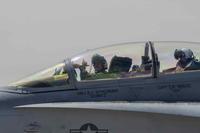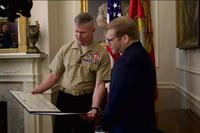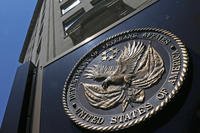The second engine program for the Joint Strike Fighter, beset by technical problems and funding shortfalls, now looks to be delayed by about four months, according to a congressional aide and the General Electric/Rolls Royce team.
The basic problem, as Buzz readers know, is a lug nut that attaches the diffuser to the combustor. It is being redesigned.
"I think the delay on the F136 will be at least four months," the congressional aide said. "It doesn’t help that, with at least a $30 million a month burn rate, OSD is not giving them the money they need. Having no appropriations bill doesn’t help, but the CR lets them spend at the burn rate needed. Also, they have been shorted about $175 million over the 2007-2009 period by Congress from what the program office said was required to execute the planned program. Last I heard it was half, $15 million, so far, for what GE needs in December (as of last week). It is not good when the program manager is having to spend the kind of time he is having to spend on managing pennies instead of focusing on engine issues.
GE spokesman Rick Kennedy added some details to the "funding shortfalls" issue, saying the $2.4 billion SDD program has not been fully funded but "has won marks with the JSF office by still delivering on budget, and delivering key milestones on schedule, such as Preliminary Design Review, Critical Design Review, and First Engine To Test."
Kennedy, answering criticism that the GE/RR program is suffering acute problems to its test program, said they have "accumulated more than 800 test hours -- 207 hours of engine core and turbofan tests in the pre-SDD phase, and since 2006, 557 hours in the formal SDD program. The SDD product-configuration engines, which began running in 2009, have 52 hours of tests. So, we are a few hundred hours behind the original SDD test plan, but testing is expected to resume in January, and during 2010, we plan to run no less than six development engines."
The test results garnered so far meet "all of our expectations in terms of thrust, temperature margins, and fuel consumption – confirming the vital role that it will play competing in the JSF program. Performance shortfalls can require significant aeromechanical design changes, and we aren't facing that," Kennedy said.








